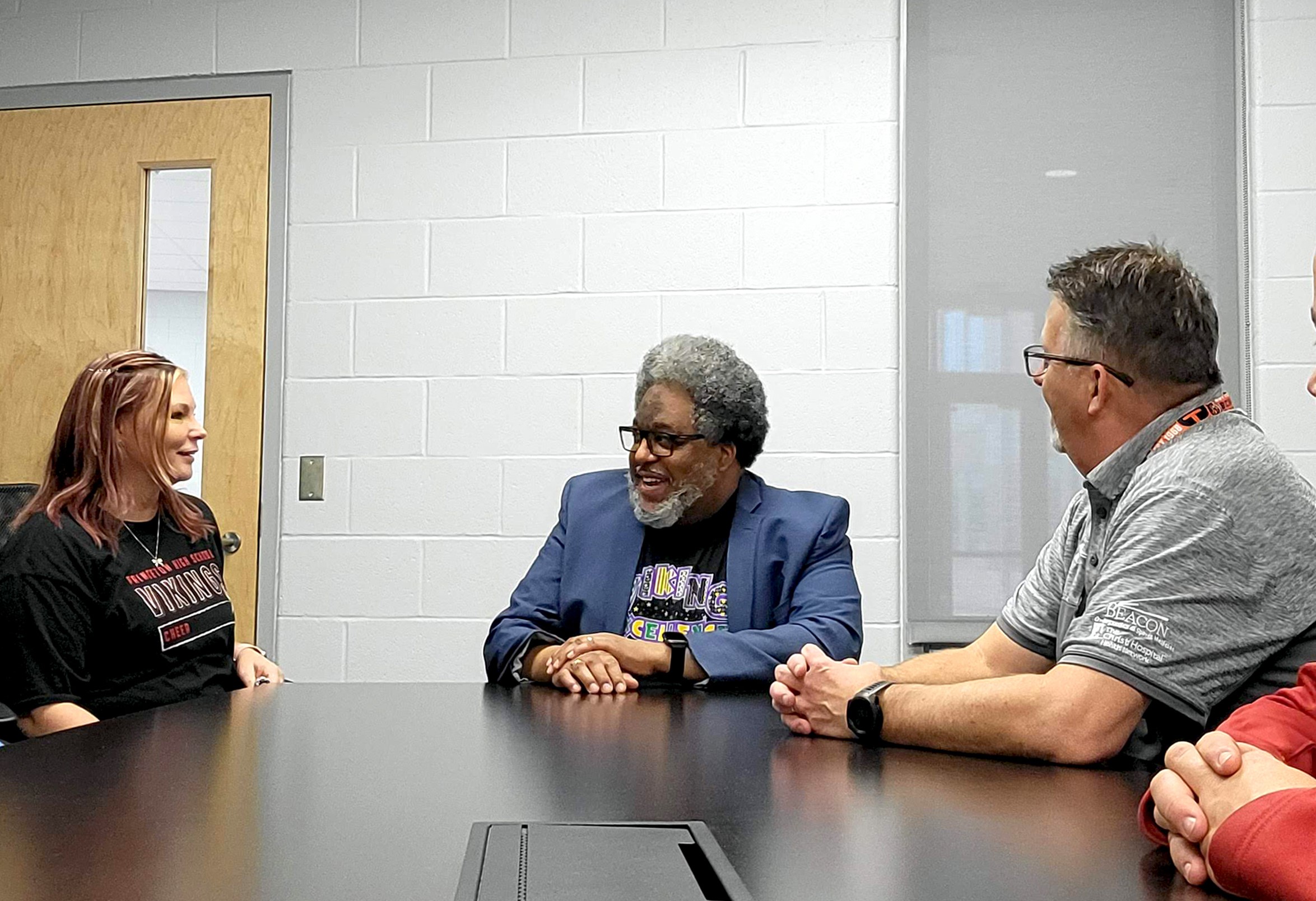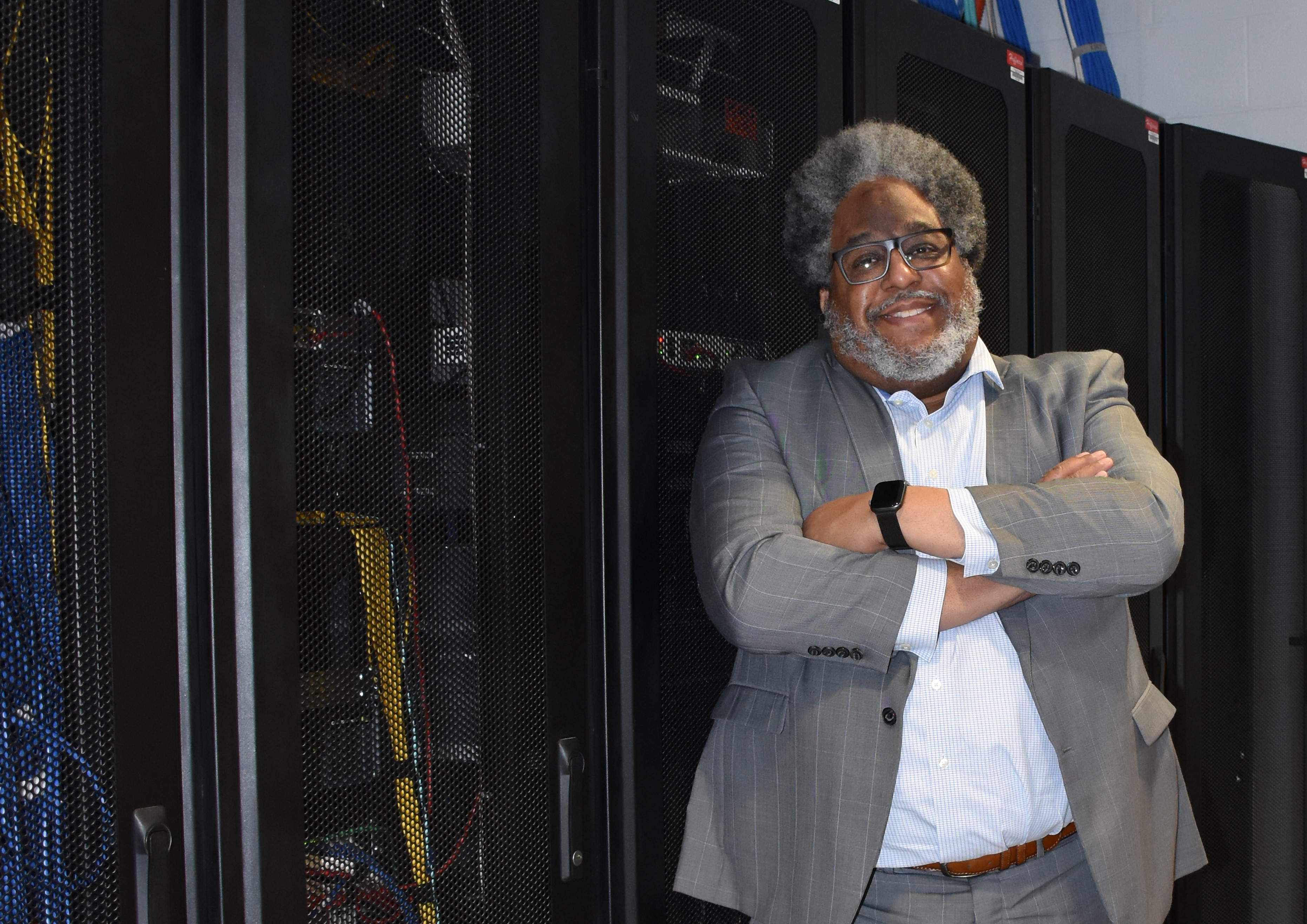Ensuring Technology Access and Equity for a District and a Community
Tech & Learning Innovative Leader Awards (Orlando): Overall Implementation of Technology

Tools and ideas to transform education. Sign up below.
You are now subscribed
Your newsletter sign-up was successful
Christopher J. Lockhart, Director of Technology, Princeton City School District, Cincinnati, Ohio
Christopher Lockhart’s efforts regarding digital equity at Princeton City School District earned him the nod for Best Overall Implementation of Technology. Though hardly a simple challenge, Lockhart is dedicated to ensuring students have equal access to technology such as devices, software, and the internet, along with proper training to navigate these tools.
“Our campus is our community and our community is our campus,” says Lockhart, the district’s director of technology. “We try to look beyond the walls of the building and are reaching out to the community.”
The biggest obstacle was in making sure all students had equal access to learning tools and tech.
“Early on in the pandemic, we were able to get a limited number of hotspots,” he says. “We then bought 600 additional devices, which covers about 10% of our student population. We made a simple Google form with easy questions to ensure they headed to families who needed them. It was a way we were trying to find equity, out of our own budget.“
Once pandemic funds started to become available, Lockhart and his district started to find more ways to expand connectivity, including equipping 62 school buses with mobile wifi. “Our students who have a longer ride to and from school now have that connectivity while they are on the bus to get their homework taken care of or download what they need before reaching home,” he says.
Nominate someone for the Tech & Learning Innovative Leader Award here
Tools and ideas to transform education. Sign up below.

Going beyond 1-to-1 across the district, PCSD has partnered with local apartment complexes and mobile home parks to provide more than 180 WiFi hotspots that can be borrowed from the office, rental centers, or community rooms. The district also expanded the bandwidth of the schools' networks to extend to outdoor parking lots.
“Each of our buildings have multiple access points outside,” says Lockhart. “We wanted to offer parents or students somewhere safe to work, where in the confines of their car they could upload and download assignments and things they needed.”
The outreach isn’t solely focused on hotspots. Lockhart and the Princeton district have been devising creative solutions to connect with the greater community for years.
“About four years ago, we created a green, solar-powered mobile book center to send to targeted district areas,” he says. “We could park the bus in these neighborhoods, fire up the solar panels on the roof and provide open internet access while there, Chromebooks to ensure each student had laptop access, and 20 VR viewers through Google Expedition that allowed people in the communities to go on virtual field trips. When the pandemic hit, we still had that asset available.”
The district is ramping up the program again now, and is weighing options to replace the former Google Expedition program, but remain dedicated to providing continued access to the Princeton Mobile Book Center experience. Lockhart’s team has also instituted monthly online events geared directly toward parents.
“In our monthly parent community series, we talk about social-emotional wellness, financing, a lot of topics focused on parents rather than students,” he says. “As part of this, we invited parents to a ‘Keeping Students Safe Online’ event discussing the need for using tech in public space in the home, and explaining social media platforms their kids might be using.”
Tech Tips
The very first thing is to recognize the complexity of technology in a school district, says Lockhart. “Some think schools are simpler than businesses when it comes to technology, but the opposite is true,” he says. “Because of the nature of what we do, we have a network of 6,000 students and 800 employees in 12 locations. For most businesses you aren’t dealing with that level of complexity and moving parts.”
Lockhart suggests working with partners to leverage their access in order to support your network and let the experts manage and maintain aspects of the program. Many districts are working with a small tech department, so delegating is crucial to achieving those goals.
“We are tech directors not tech doers, but we are so used to doing it all that we get stuck in the ‘if something is broken I need to build a system so if it gets broken again there is a plan in place to fix it’ mentality,” he says. “There just isn’t the time.”
Sascha has nearly two decades of experience as a freelance journalist writing for national magazines, including The Washington Post, LA Times, Christian Science Monitor, National Geographic Traveler, and others. She writes about education, travel and culinary topics.

